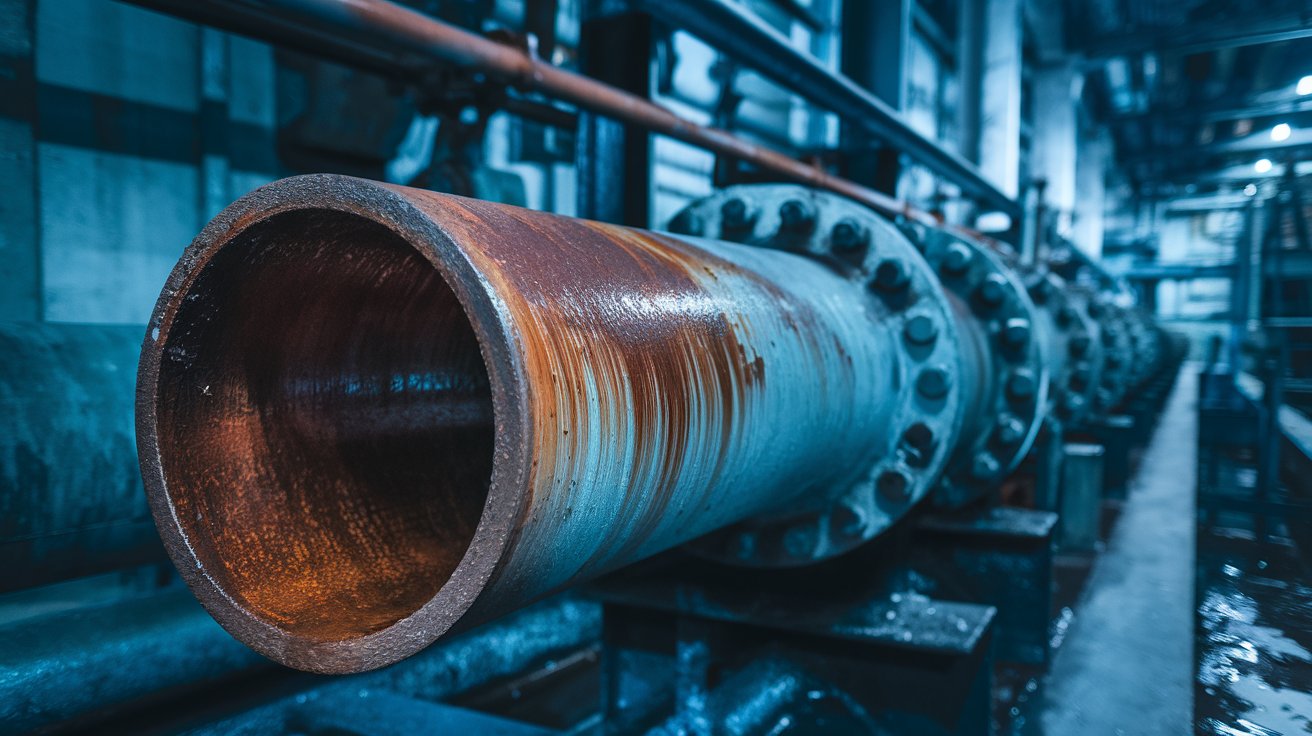Ever turned on the tap and seen brown or orange water pouring out? That unpleasant surprise is more than a cosmetic issue. Rusty water could be your home’s way of warning you that something’s wrong behind the walls. Whether you’re dealing with aging pipes or sediment buildup, ignoring rusty water could lead to bigger plumbing problems and even impact your health.
What Causes Rusty Water in Your Home?
Rusty water typically originates from corrosion inside your pipes or water heater. When iron or steel pipes start to rust, tiny flakes can break off and mix with the water. This is especially common in older homes with galvanized pipes. Another potential source is the municipal water supply, particularly if maintenance or a hydrant flush has recently occurred.
Is It Dangerous?
While rusty water might not always be harmful, it certainly isn’t ideal. Drinking it regularly may lead to digestive issues, and washing clothes or dishes with it can cause staining. For individuals with weakened immune systems, it’s wise to avoid consuming discolored water altogether.
Early Signs Your Pipes Are in Trouble
One of the biggest red flags that often accompanies rusty water is low water pressure. Corroded pipes don’t just shed rust; they also narrow internally, restricting water flow. If your water starts to sputter, takes longer to fill a sink, or pressure drops without explanation, rust and buildup may be the culprits.
Other Symptoms to Watch:
- Persistent clogs or slow drains
- Unusual taste or odor in water
- Water temperature fluctuation
- Leaks or wet spots near pipe joints
H2O Horror Story: When Rust Becomes a Flood
Imagine starting your day with a cup of coffee, only to hear a loud pop in the wall followed by gushing water. That’s not fiction. Corroded pipes can burst without warning, and rusty water is usually the prelude to such failures. The longer you ignore those orange streaks in your tub or cloudy water in your glass, the greater your risk of a plumbing disaster.
How to Diagnose the Root Problem
Before you panic or call a plumber, here’s how you can do a little home investigation.
Try These Simple Checks:
1. Cold vs. Hot Water Test
If the rusty water appears only when using hot water, your water heater may be the issue.
2. Single Faucet Test
Run water from various taps. If only one faucet produces discolored water, the problem could be isolated to a specific pipe or fixture.
3. Timing and Duration
Does the rustiness occur only after long periods of inactivity? That could suggest sediment settling in your pipes or water heater.
Use a Water Quality Test Kit
These kits can detect the presence of iron, lead, and other contaminants. They’re easy to use and available at most hardware stores. While it won’t fix the issue, it gives you a clearer idea of what you’re dealing with.
Solutions for Rusty Water
Now that you’ve confirmed you’re not imagining things, it’s time to take action. Here are the most effective ways to tackle rusty water and what your pipes are likely trying to communicate.
1. Replace Old Galvanized Pipes
If your home is more than 30 years old and still has galvanized steel pipes, it may be time to replace them. Copper or PEX piping offers greater durability and doesn’t rust. While it’s an investment, it’s also a long-term solution.
2. Flush Your Water Heater
Sometimes the water heater is the only culprit. Flushing the tank at least once a year can remove accumulated sediment and rust flakes. A professional plumber can help if you’re unsure how to do it safely.
3. Install a Whole-House Water Filter
These systems filter out rust, sediment, and other contaminants before they enter your tap. It’s a great preventive measure, especially in areas with older municipal plumbing.
4. Schedule a Plumbing Inspection
If DIY efforts don’t solve the issue, a licensed plumber can run a camera inspection through your lines to locate rust, corrosion, or other internal pipe damage.
Preventing Rusty Water in the Future
Regular Maintenance is Key
Waiting for pipes to rust through is never a good idea. Create a maintenance schedule that includes:
- Annual water heater flushes
- Routine inspection of visible pipes
- Replacing worn-out washers and connectors
- Monitoring for pressure changes or staining
Be Mindful of Water Chemistry
Hard water can accelerate pipe corrosion. If you notice calcium or lime deposits around your fixtures, consider installing a water softener to extend the life of your plumbing system.
Educate Your Household
Make sure everyone knows what to look for in their water. Train family members to report changes in color, pressure, or taste so issues are addressed early.
When Rust Speaks, Listen
Rusty water isn’t just unsightly; it’s your home waving a red flag. Whether it’s low water pressure or discolored water in your morning shower, your plumbing system is trying to tell you something. Don’t ignore it. A little attention now can save thousands in water damage and repairs later. Stay alert, stay proactive, and give your pipes the care they deserve.
